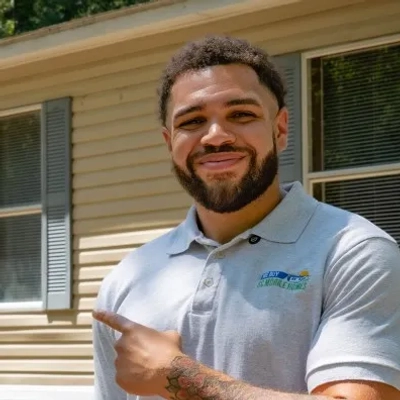23 Strategies for Building Relationships With Vendors and Partners
Building strong relationships with vendors and partners is crucial for business success. This article presents expert-backed strategies to foster trust, collaboration, and mutual growth. Discover practical insights that will help you transform transactional interactions into strategic partnerships.
- Foster Trust Through Clarity and Collaboration
- Involve Vendors Early and Review Regularly
- Prioritize Transparency and Proactive Communication
- Build Goodwill Through Consistent Support
- Cultivate Partnerships Beyond Transactions
- Streamline Communication for Efficient Collaboration
- Establish Clear KPIs for Mutual Success
- Unite Vendors to Solve Problems Together
- Demonstrate Commitment by Working Alongside Vendors
- Connect Vendor Work to Community Impact
- Walk Job Sites to Set Clear Expectations
- Document Agreements to Prevent Misunderstandings
- Resolve Issues Directly Through Phone Calls
- Share Project Purpose to Inspire Vendors
- Understand Vendor Business for Fair Negotiations
- Create Detailed Contracts for Smooth Operations
- Align Incentives for Strategic Vendor Relationships
- Choose Partners Reflecting Company Values
- Include Core Vendors in Quarterly Planning
- Exceed Payment Terms to Prioritize Projects
- Keep Your Word in Close-Knit Communities
- Show Tangible Appreciation for Vendor Efforts
- Respect Vendor Time for Mutual Benefit
Foster Trust Through Clarity and Collaboration
My approach to building and managing relationships with external vendors and partners is grounded in clarity, consistency, and collaboration. From the start, I ensure expectations are clearly documented—everything from compliance requirements to communication turnaround times—so there's no room for misalignment later. I also believe in treating vendors as strategic partners, not just service providers. When they understand the bigger picture of how their role impacts our clients and overseas workers, they're more engaged and proactive.
One practice I find essential is maintaining a structured feedback loop. We schedule regular check-ins where we review performance, address challenges early, and share upcoming pipeline needs. This ensures issues are resolved before they escalate, and it gives vendors the confidence that we are invested in their success too. Over time, this practice has helped us build long-term, trust-based relationships that are resilient even when market conditions shift.

Involve Vendors Early and Review Regularly
My military background taught me that strong partnerships require clear communication and mutual respect, which I've carried into my real estate business. I make it a point to involve vendors in the planning process from day one. For instance, when I'm evaluating a property, I'll bring my trusted contractor along to assess the scope before I even make an offer. One practice I find essential is maintaining what I call 'after-action reviews' with my key vendors after each project, where we discuss what went well and what could be improved. This continuous feedback loop has strengthened our working relationships and made every subsequent project smoother.

Prioritize Transparency and Proactive Communication
My approach to building and managing relationships with external vendors and partners is to treat them as long-term collaborators rather than transactional suppliers. I make a point of being transparent about both my expectations and my constraints, which builds trust and sets the foundation for fair negotiations. One practice I find essential is regular check-ins outside of immediate project needs. For example, I schedule quarterly calls to review performance, discuss upcoming needs, and ask how we can make the relationship mutually beneficial. This proactive communication helps surface small issues before they become big problems and often leads to creative solutions. It also shows vendors that I view them as strategic partners rather than interchangeable providers. Over time, this approach has resulted in better pricing, priority service during busy periods, and stronger loyalty from partners who feel valued and respected. Consistency and transparency are what sustain these relationships.
Build Goodwill Through Consistent Support
Coming from the restaurant industry, I learned that relationships are built on consistency and going beyond what's expected. I always pay my contractors and vendors promptly--sometimes even early--because cash flow is everything in their business, and that goodwill pays dividends when I need a rush job or they're booked solid. One essential practice is bringing coffee or lunch to job sites; it sounds simple, but showing up with something for the crew creates a personal connection that turns a business relationship into a partnership where everyone genuinely wants to see the project succeed.

Cultivate Partnerships Beyond Transactions
I approach building and managing relationships with external vendors and partners the same way I do with clients—by treating them as collaborators rather than just service providers. For me, it starts with setting a foundation of transparency and mutual respect. I make an effort to clearly communicate expectations, timelines, and goals while also listening to what matters most to them. It's surprising how often small details—like understanding their capacity constraints or seasonal busy periods—can lead to smoother collaboration and fewer conflicts down the line.
I also try to avoid a purely transactional mindset. I check in with vendors even when we're not actively working on something urgent, just to keep the relationship warm. This makes it easier to have candid conversations if challenges arise because there's already trust in place. I've noticed that vendors often go the extra mile for partners who value their contribution, and that goodwill is something I don't take for granted.
One practice I find essential is consistency—showing up reliably and honoring commitments. Whether it's paying invoices on time, providing feedback when promised, or following through on agreed terms, consistency signals respect. It may sound simple, but it's often what separates a strong long-term partnership from a purely functional arrangement. In my experience, when both sides know they can count on each other, everything else—innovation, collaboration, and problem-solving—flows much more naturally.

Streamline Communication for Efficient Collaboration
For me, the foundation of strong vendor and partner relationships is showing genuine respect for their craft and time. One thing I do is send a quick recap text or email after every kickoff call--highlighting next steps, timeline, and who's handling what--which keeps everyone aligned and prevents miscommunication. That five-minute effort often saves hours of trouble down the line, and partners appreciate that I'm committed to keeping things clear and organized.

Establish Clear KPIs for Mutual Success
I approach building and managing relationships with external vendors and partners by treating them as true collaborators rather than just service providers. I make it a point to understand their goals, capabilities, and constraints so that we can align on mutual expectations from the start. Regular communication is key—I schedule monthly check-ins to review performance, discuss upcoming needs, and address any challenges proactively. One practice I find essential is setting clear, measurable KPIs at the outset of any partnership. This not only provides a transparent framework for evaluating success, but it also ensures both sides are accountable and working toward the same outcomes. I've found that by combining trust, transparency, and structured metrics, these relationships become far more productive and long-lasting, and vendors often go the extra mile because they feel genuinely invested in our shared success.

Unite Vendors to Solve Problems Together
I believe in building vendor relationships through genuine partnership and shared accountability. One essential practice I've developed is creating what I call 'solution sessions' -- when we hit a snag on a project, instead of pointing fingers, I bring all relevant vendors together to brainstorm fixes as a team. For example, when we had a foundation issue that affected both our plumber's and electrician's timelines, we sat down together and mapped out a revised approach that actually improved the final result. This collaborative problem-solving builds trust and shows everyone that we're working toward the same goal of helping homeowners.
Demonstrate Commitment by Working Alongside Vendors
I build strong vendor relationships by working alongside them and respecting their craft, something I learned firsthand in construction. One practice I find essential is to roll up my sleeves and help when needed--like recently when I joined my plumbing crew to fix a burst pipe overnight to save a deal. That kind of partnership shows we're a team, not just a transaction, and earns their loyalty for future projects.
Connect Vendor Work to Community Impact
I approach vendor relationships by recognizing that we're co-creating community impact through affordable housing. What's essential? I schedule quarterly coffee meetings to review our shared vision beyond immediate projects--like discussing how their plumbing upgrade in a mobile home transformed a neighborhood. This approach is important because connecting their craftsmanship to real outcomes builds lasting commitment and quality work.

Walk Job Sites to Set Clear Expectations
I've found that the best vendor relationships are built by showing consistency in how you operate--pay on time, communicate quickly, and keep your word. One practice I consider essential is walking the job site together before work begins; it sets clear expectations and also shows respect for their expertise, which makes vendors feel invested in the outcome. That mutual trust pays off when you need them to go the extra mile on the next deal.

Document Agreements to Prevent Misunderstandings
I approach vendor and partner relationships with an engineer's mindset--building sustainable systems rather than just quick fixes. Having transitioned from automotive to real estate, I've learned that transparency about capabilities and limitations upfront prevents headaches later. My essential practice is maintaining detailed documentation of all agreements and conversations--it might sound technical, but this habit has saved countless relationships when memories differ about what was promised. When everyone can reference the same information, we stay focused on solutions rather than disputes.

Resolve Issues Directly Through Phone Calls
I've found that the strongest vendor relationships come from treating challenges as shared problems to solve together. One practice I consider essential is picking up the phone instead of hiding behind email when an issue arises--having a direct conversation not only resolves things faster but also reinforces trust. Over the years, I've discovered that vendors remember who communicates openly under pressure, and that reliability keeps them eager to work with me on the next deal.

Share Project Purpose to Inspire Vendors
I see my vendors as partners in our mission to help homeowners, not just as contractors completing a task. The most essential practice is to share the 'why' behind each project--explaining that this isn't just a renovation, but a way to help a family avoid foreclosure or settle an inheritance. When they understand the human story, they become deeply invested in a positive outcome, and that shared purpose makes all the difference.

Understand Vendor Business for Fair Negotiations
For me, the key to successful vendor relationships is understanding their business just as well as I understand my own; it creates a natural synergy. One practice I find essential is doing my homework on their pricing and processes so I can negotiate from a place of knowledge, which assures them I respect their work and helps us align on fair terms from the start, whether it's for a quick renovation or a major flip.

Create Detailed Contracts for Smooth Operations
My approach to building and managing relationships with external vendors and partners is centered on clear communication and mutual respect. I believe in setting expectations up front and maintaining open lines of communication throughout the partnership. This includes regular check-ins to ensure alignment on goals, progress, and potential issues. I also make sure to listen to their feedback and suggestions, fostering a collaborative environment where both parties feel valued.
One practice I find essential is creating detailed, transparent contracts that outline expectations, responsibilities, timelines, and payment terms. This helps prevent misunderstandings down the line and sets a strong foundation for the relationship. By being proactive in clarifying terms and expectations from the start, we avoid friction and ensure smoother operations. This transparency builds trust, making the partnership more productive and sustainable in the long run.

Align Incentives for Strategic Vendor Relationships
I treat vendors as part of the operating system of the company. Each one is mapped to a specific capability, tiered as strategic, leveraged, or utility, and given an owner and a clear evaluation metric. The evaluation lens must fit the type of vendor. For example, GTM partners should be judged on pipeline and revenue impact, while tech infrastructure vendors are assessed on resilience, integration quality, and cost efficiency. The most strategic vendors are brought into the loop through structured cadences. For example, last week we had our cloud provider on-site for a week to go through system design optimization with our team.
The essential practice is creating incentive alignment. A vendor cannot drive outcomes without grasping how we define success, just as we cannot manage the relationship without knowing what creates the most value for them. Clear criteria, transparent dialogue, and operational independence ensure the relationship is not dependent on goodwill but on aligned incentives. When vendors see themselves as drivers of our goals, and when we actively position them to succeed on theirs, the relationship becomes more than transactional. It becomes an extension of strategy, with performance and trust compounding over time.

Choose Partners Reflecting Company Values
For a small business, our external vendors and partners play a crucial role in our operations. In the early days, our approach was merely transactional. We would opt for the cheapest option, but it often resulted in higher costs in the long run due to poor quality and lack of communication. We realized we needed to find a different way to build genuine relationships.
One practice I find essential is to view every vendor as a partner, not just a cost center. The key is to be a partner yourself, rather than just a customer.
From an operational standpoint, we stopped simply choosing the cheapest option. Instead, we began looking for partners who directly reflected our values. We chose vendors who were committed to quality and communication, and who were willing to work with us to find solutions to problems. From a marketing perspective, our relationships became a direct reflection of our brand's values. We were not just customers; we were trusted partners.
The impact of this approach was a significant increase in our business's resilience. The trust we built was so strong that when we faced a major supply chain disruption, our partners went above and beyond to help us. The greatest benefit is that we've built a reputation as a reliable and trustworthy partner company.
My advice is to stop focusing solely on price. Look for partners who directly reflect your values. The best way to build a great business is to establish it on a foundation of trust and a shared commitment to quality.

Include Core Vendors in Quarterly Planning
My approach is to treat vendors as an extension of my own brand, because their work directly reflects on the promise I make to our clients. Since I've managed thousands of property flips, one practice I find absolutely essential is to bring my core group of vendors into our quarterly planning meetings. In these meetings, we not only map out upcoming projects but also review homeowner feedback. This practice makes the vendors stakeholders in our reputation and ensures we are all aligned on delivering quality that puts the client's needs first.

Exceed Payment Terms to Prioritize Projects
My approach to vendor relationships stems from my background in finance and trust management—I treat every partnership as a fiduciary relationship where both parties' interests must be protected. One practice I find absolutely essential is establishing clear payment terms upfront and then exceeding them; for example, I often pay contractors within 24 hours of completion rather than the agreed 7 days, because improving their cash flow demonstrates my commitment to their success. This financial reliability has created a network of vendors who prioritize my projects, which is crucial when helping distressed homeowners who need quick closings.
Keep Your Word in Close-Knit Communities
As someone born and raised right here in Wilmington, my vendors and partners are often my neighbors, so I treat those relationships with the same level of respect. One practice I find essential is simply keeping my word—whether it's about a payment timeline or a project scope—because in a close-knit community like ours, your reputation is your most valuable asset. That local trust is what enables my team to promise and deliver a truly smooth process for homeowners.

Show Tangible Appreciation for Vendor Efforts
I've learned that one of the simplest but most powerful ways to build strong vendor partnerships is by showing appreciation in tangible ways. For instance, after a tough renovation where my contractor pulled long hours, I made it a point to personally thank him with a small gift card and a handwritten note. It wasn't about the money, but about letting him know I recognized his effort. That personal touch goes a long way in making partners feel valued and motivates them to give their best on the next project.

Respect Vendor Time for Mutual Benefit
I focus on making vendor and partner relationships a two-way street—yes, I expect them to deliver, but I also ask how I can make their job easier. For example, if a lender needs documents from me, I don't wait until the last minute; I send them right away so they're never chasing me. That kind of respect for their time builds trust and makes them want to go the extra mile when I need it most.






